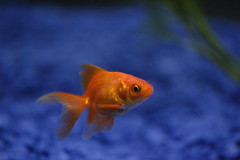Summary
Ambient computing is coming and it will have a bigger impact on your life than any change in the last 40 years.
A real Internet of Things will be immersive and pervasive.
Imagine a connected glass at your favorite restaurant. The glass might report what and how much you drank to your doctor (or the police), make a record for the bill or even charge directly for each glass, send usage statistics to its manufacturer, tweet when you toast your guest, tell the waitstaff when it’s empty or spilled, coordinate with the menu to highlight good pairings, or present to your Google Glasses as a stein or elegant goblet depending on what’s in it. Now imagine that the plates, silverware, tablecloth, table, chair, and room are doing the same.
In their book Trillions, Lucas, Ballay, and McManus present a vision for a near-future world where nearly everything is connected together. About this network, they say:
We have literally permeated our world with computation. But more significant than mere numbers is the fact we are quickly figuring out how to make those processors communicate with each other, and with us. We are about to be faced, not with a trillion isolated devices, but with a trillion-node network: a network whose scale and complexity will dwarf that of today’s Internet. And, unlike the Internet, this will be a network not of computation that we use, but of computation that we live in.
Ambient computing, as this is called, is as difficult for us to imagine as it is for us to imagine living underwater. To us, water is something that exists in cups, tubs, and pools. We notice it and use it or avoid it as necessary. But to a fish, water is ambient. They cannot avoid it. Whether it is crystal pure or horribly polluted, they live in it.
This change, from computing as a thing we do to something that we exist within, will have vast impact on our lives. Like the fish in water, we will be immersed in a sea of computation. Our actions and our words will have impact beyond the current sphere.
Ambient computing will be inescapable. There will be no living outside of the computation. Every thing you do today will be intermediated by computation of some kind. A visit to the grocery store won't be possible with interaction with the smart packaging. Getting there won't be possible without smart vehicles that talk to smart roads and smart intersections. Preparing the food you buy will involve a smart power grid and connected appliances, pots, and pans. Even eliminating the waste will involve trash cans and toilets that are connected to the network.
Do we want to build this? That's the wrong question. Connecting everything is inevitable. Our choice is how we want things to be connected and who controls the devices, data, and processing.






